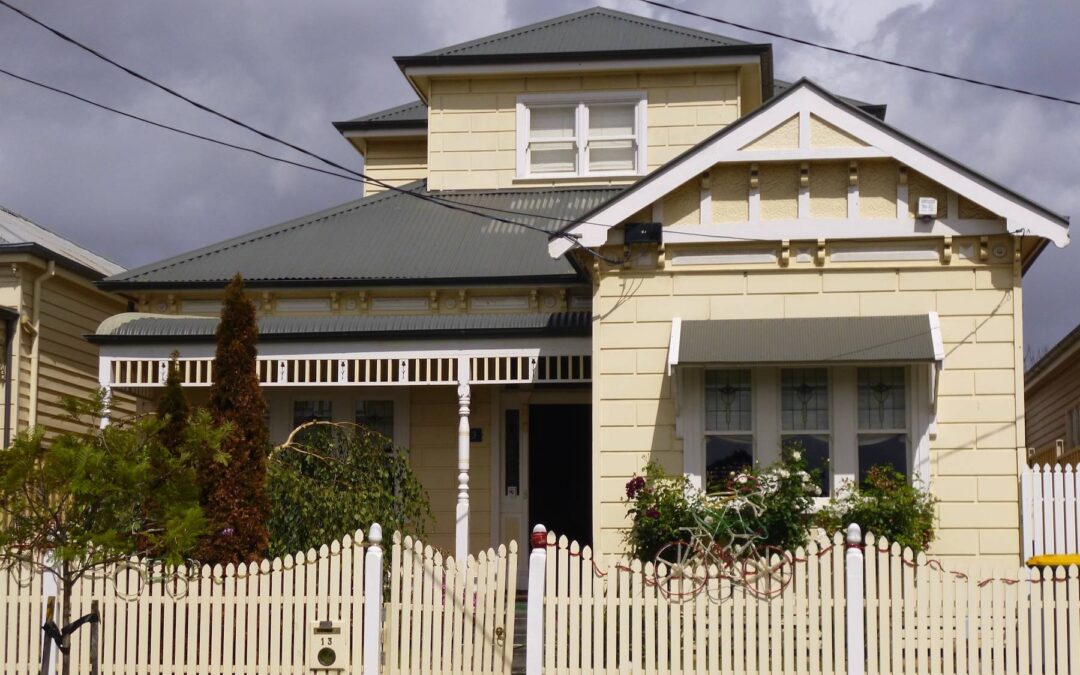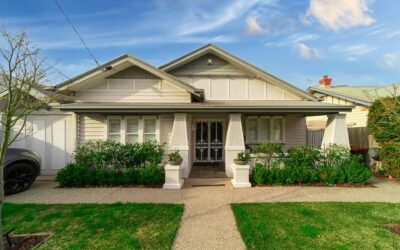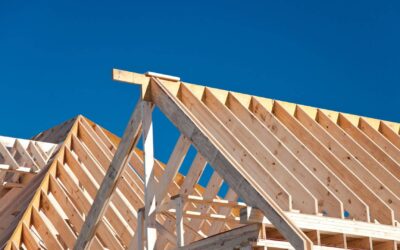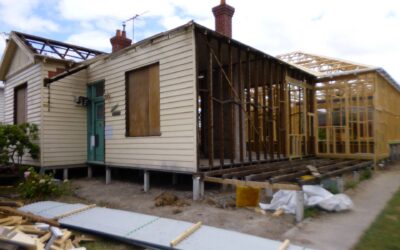Picture this scenario, it’s moving day and you have finally loaded all of your furniture and boxes onto the removal van. Your kids have been driving you mad all day and the cat has gone missing, your back is aching and you haven’t eaten since you crammed a stale piece of bread and jam into your mouth at 6:00am this morning. And when you get to the other end you have to unload the truck and unpack, beds to make, furniture to arrange… the list goes on. Not to mention the costs: removalists, real estate agents, lawyers, labour, materials and time to fix up the house, endless weekends looking for a new perfect home for you and your family and then vacating your own home while potential buyers look around.
Or there is scenario two, you have engaged a local Melbourne builder to build the extension and renovation of your dreams. They started work last week and you are already sick of the banging, drilling, shouting, dust, dirt and stuff everywhere. All day long, for the next three to six months…
When it comes to the pros and cons of upsizing versus extending, which is the winner? Here we will discuss the options but ultimately the choice is up to you…
Time to upsize your home
Selling your home to move to a bigger property doesn’t have to be a negative experience. Now that you have owned and lived in your current property you will know what you are looking for in your next home. You may already have an area in mind that you really want to move to and can keep an eye on suitable properties there as they come available.
However, there are also some downsides and disadvantages. Many people looking to upsize don’t sit down and work out the actual cost of selling your current property and buying a new one, or indeed have a contingency fee for the costs involved. Some of these include:
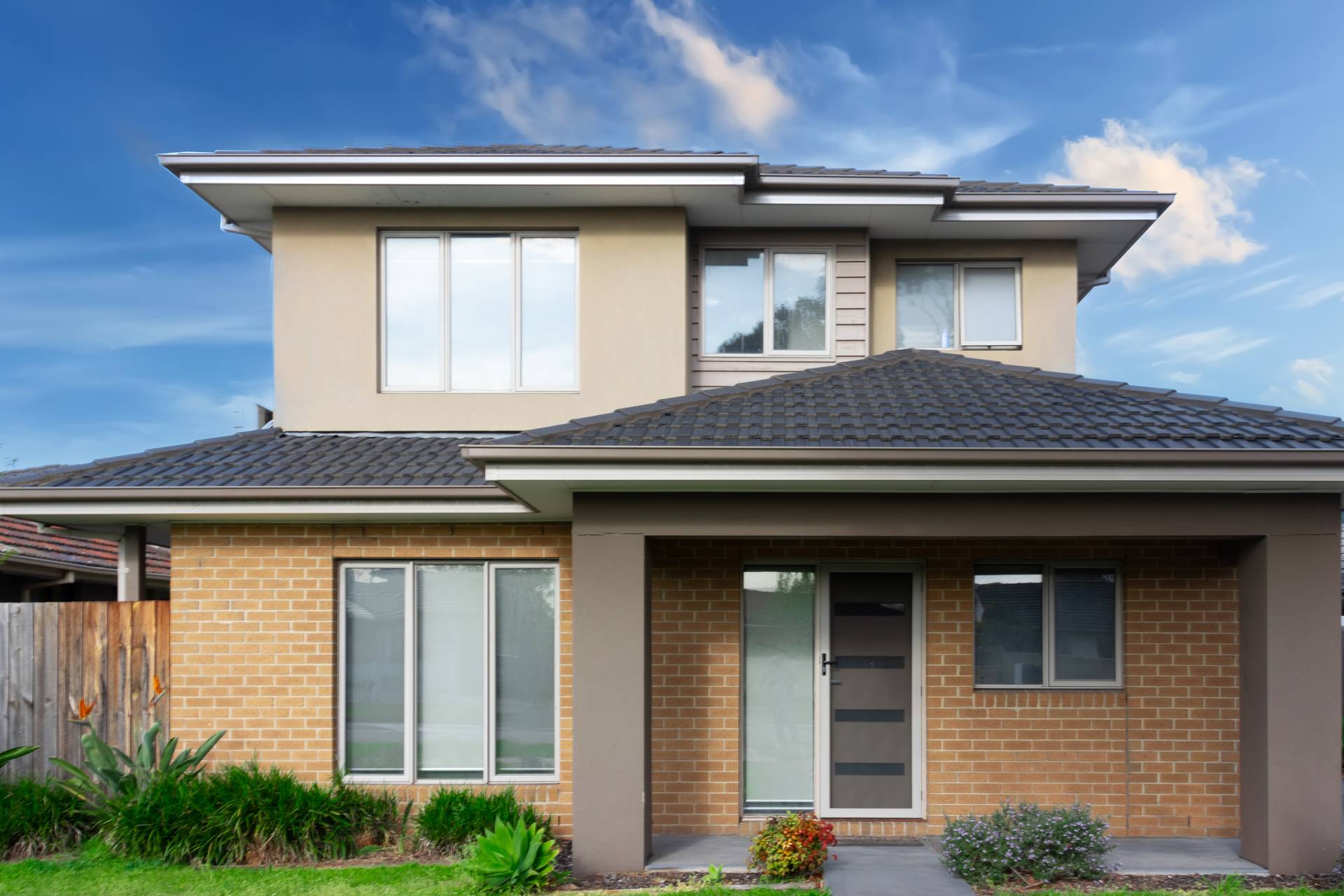
Real estate agent fees – these vary from suburb to suburb, in Victoria the average is 2.13%, so if you sell your home for $700,000 your commission to the real estate agent will be $14,910.
Marketing and advertising fees – costs can range from hundreds to thousands of dollars but 1% of sale price is about average.
Settlement fee – this is paid to the bank and can cost around $150-$400.
Repair and presentation of current property – this could be a general tidy up of the garden and basic repairs or you may need to repaint the entire house and modernise certain aspects. This could cost $5000 plus.
Time spent selling your house – apart from the physical financial costs you will also need to set time aside to research and interview real estate agents, prepare your house for sale and evacuate it during open house appointments.
And then there are the costs associated with buying a new home:
Stamp duty – this is the big one at 5.5% of sale price in Victoria. If you are paying the median price in Metro Melbourne for a house, $725,000*, the stamp duty will be $39,875.
Legal fees – depending on the complexity of the sale these can range from $500-$3000.
Building and pest inspection – the average cost is $400-$600.
Bank fees – this covers administration costs for lenders and can be between $150-$400.
Removal costs – these can range from renting a van for a day for $100 to paying someone to pack everything, transport it and unpack and put away at the other end. The latter could set you back thousands. There is also the cost of packing materials to consider.
Cleaning – you have the option of doing this yourself or hiring a professional for both the house you are selling and buying. You may also need to get carpets cleaned and pay for rubbish to be removed.
Water and council rates – you may have to pay the vendor the remaining yearly or quarterly rates from the date of settlement.
Administration – reconnecting the phone, Foxtel and utilities; mail redirection.
Changes/renovations to new property – are there any urgent renovations or changes required on moving in to the new property or decor you want to change immediately?
Time spent buying a new house – buying a property consumes a lot of time and energy. Researching potential properties, attending open houses, speaking with your bank, lawyer, real estate agent, it all adds up and it can take many months to find what you are looking for. Then there is finding removalists, packing, cleaning, moving, unpacking, organising all of the administration. Not to mention the disruption to your life if your children need to change school, finding a new dr/dentist etc.
Total costs for selling and buying another home in Melbourne could easily be $70,000 plus, this is all money that could be used towards an extension to your existing home.
Opting for a home extension
There are a number of benefits to staying in the house you are currently in and working with a great builder to transform the property to suit your needs. One benefit is knowing the house you are living in and its good points and bad points and working with these. You can work with a building designer to create exactly what you want whether it is an ensuite or an indoor/outdoor living space. The money you spend on extending and renovating will add to the capital of your home meaning if you do decide to sell you should regain the cost outlay.
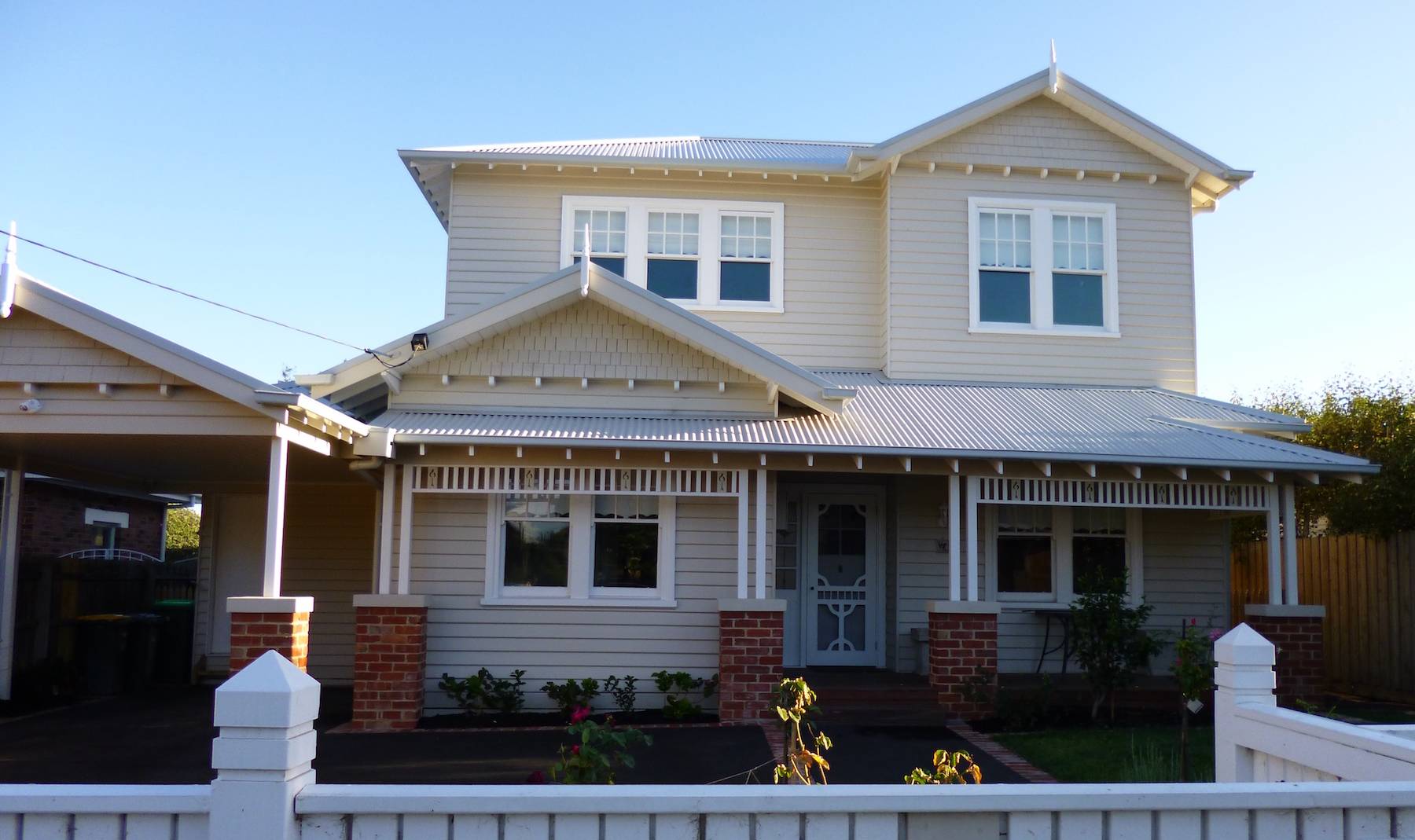
A quality home extension is obviously going to come at a price. Here are some of the downsides and costs involved with extending your current home:
Building permits – you may need both a planning and building permit before you start the extension, the planning permit can be obtained through your local council and building permit through your builder or a building surveyor, you must to factor in the time needed to obtain the planning permit. The cost of the permits will depend on the size, scale and complexity of your project. Find out from your local council if there are exemptions that exist if you make minor adjustments to your plans. You can nominate your builder or architect to obtain your permits but you must draw up a contract to enable them to do so.
Bank costs – there are a number of options available for funding your renovation. If you need to borrow money against the existing mortgage to pay for the cost of the extension there may be some costs involved through your mortgage provider.
Building costs – the cost of a major extension could be as much as $400,000 depending on the scale and complexity of work required. There are a number of factors which will impact the cost of your home addition, a major one is whether it is a first or second floor extension. Read my article on the average cost of extending your home for more on this topic.
Other factors that increase costs include strengthening load bearing walls, excavating, replacing current cladding, interior details such as flooring and painting, taking the roof off and weather proofing the house, asbestos removal, engineering for the extension, scaffolding, engaging an architect or draftsman to draft building designs, hiring an independent building surveyor. A good home builder will discuss all of these costs with you up front but it is advisable to have a 10-15% buffer in your budget to cover any unforeseen costs.
Temporary relocation – if you have to move into a rental property you will need a bond and at least four weeks rent upfront. Many rental properties will only allow you to lease for a minimum of six months or even a year. Ensure you factor in additional time for building delays due to weather and sourcing building materials. You may need to hire removalists to move your furniture and belongings during this time or even place some items in storage.
Home and contents insurance – you may not be covered during major works to your property, speak to your insurer to find out.
Time – it is crucial that you spend time researching the best builder for your home extension. Look through photos of their work or even go and check out some of their previous building projects to get a feel for the quality of what they do. Make sure you get quotes from more than one builder to get a deep understanding of the cost of your extension. An inexperienced builder may not factor in all of the necessary costs and time frames involved. If you need to vacate your property during the renovations you will also need to invest time finding a suitable temporary home.
Disruption – dust, health and safety hazards, temporary relocation, lack of privacy while tradespeople are working on your extension, noise…. These are all inconveniences you need to consider.
As you can see, there are a number of pros, cons and costs involved with upsizing or extending and it is a personal choice as to which is the best fit for you, your lifestyle and your budget. Good luck!
Please not all quoted figures are an indication only, proper research should be done as all situations will differ.
Contact Mastercraft Construction to discuss your home extension and renovation requirements today.
Related Posts
5 things you need to consider for a successful Californian Bungalow extension
Small and sweet, Californian Bungalows are the perfect candidate for an extra room or two addition instead of room or two? Discover the top 5 things you should consider when planning your...
Home extension costs: What you need to know for a successful house extension
Planning a home improvement is exciting. Budgeting accurately is essential. Explore home extension costs and how you can get the most out of your project. So, you’re thinking about...
Reno realities of real builds v’s TV shows
Go on, admit it. You’re addicted to home reno TV programs… you know, The Block, My House Rules, Flip or Flop and anything else where people transform average (or less) homes, into amazing....

